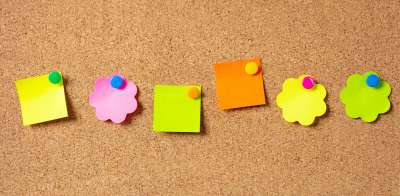You as a Person
The reasons you are a teacher are undoubtedly many. Who you are as a person and how you would like to share your personality with students are significant factors in why you choose to be a teacher. So, too, will they be significant in terms of your success in the classroom. My own experience with hundreds of teachers has taught me that the personality of a teacher is a major and predominant factor in the success of students within that teacher's influence.
Joy to the World
Good classroom teachers are joyful. They relish in the thrill of discovery and the natural curiosity of students. They are excited about learning and often transmit that excitement to their students. They are stimulated by the unknown and are amazed at what can be learned, not just at what is learned.
Students consistently rate teachers high when humor is part of the classroom environment. This humor does not come from telling lots of jokes, but rather from the good-natured conversations and discussions carried on with students. Humor helps break down conversational barriers, establishes good rapport, and builds strong classroom communities.
Secondary Thoughts
Observations of successful secondary classrooms reveal that the teacher's knowledge of the subject is of considerably less importance (to students' learning) than her or his energy for teaching the subject.
You should be passionate. Good teachers are good because they not only have a love for children, but they also have a passion for the subjects they teach. If you're passionate about teaching, your students will know immediately. If you're less than excited about what you're doing, students will be able to determine that very rapidly, too. Your passion for teaching must be evident in everything you do.
I Wonder Why …
Effective teachers are inquisitive. They continuously ask questions, looking for new explanations and myriad new answers. They serve as positive role models for students, helping them ask their own questions for exploration. They are content with not finding all the answers but rather with developing a classroom environment in which self-initiated questioning (by both teacher and students) predominates.
Good teachers are also creative. They're willing to explore new dimensions and seek new possibilities — never sure of what lies around the corner or down the next path. They're willing to experiment and try new approaches to learning — not because they've been done before but simply because they've never been tried at all.
Outstanding teachers seek help from others. They talk about new strategies with colleagues, seek input from administrators and education experts, read lots of educational magazines and periodicals, and access websites frequently. They don't try to go it alone.
Effective teachers are change-makers. They're not afraid of change and realize that change can be a positive element in every classroom. If something isn't working, these teachers are eager to strike out into new territories for exploration. They're never content with status quo; their classrooms are always evolving, always in a state of transition.
Flexibility
I have interviewed scores of teachers all over the United States, from Maine to California and from Oregon to Florida — and a lot of places in between. I wanted to get their thoughts and impressions of good teaching and the characteristics they felt are essential in a quality-based classroom program.
To a person, they all told me the same thing: the number-one characteristic of a good teacher is flexibility or the ability to roll with the punches and not let the little things get you down.
It might come as no surprise to you, but there's no such thing as an average or typical day in teaching. Students come and go, clocks and other machines break, parents drop in unexpectedly, administrators have reports to file, meetings are scheduled at the last minute, you forget your lunch or your car gets a flat tire, the film you ordered didn't arrive, and a hundred other things can — and often do — go wrong.
However, it's the flexible teacher — the one who doesn't let these inevitable “roadblocks” get in her or his way — who survives and teaches best in the classroom. Yes, there will be “surprises,” unanticipated and unplanned events, and glitches along the way. But if you are willing to compromise, bend, and adjust, you will give yourself an incredible opportunity to succeed.














